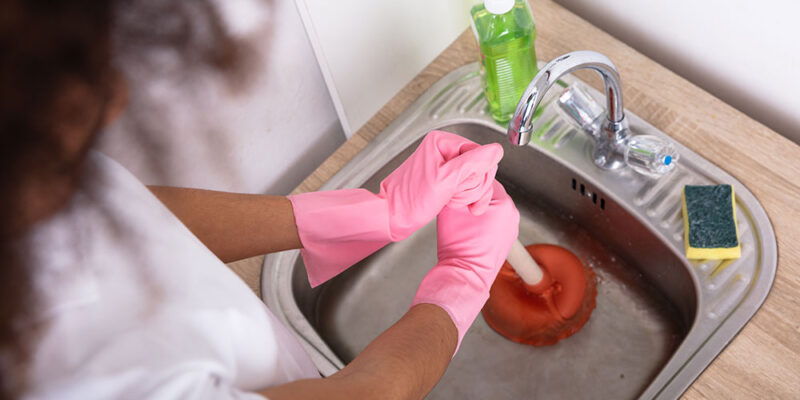Encountering a blocked drain is an all-too-familiar hurdle that almost everyone faces at some point. The causes behind these blockages are varied, with hair, grease, and soap being the most prevalent culprits. Over time, these substances accumulate and create stubborn blockages that demand attention. We asked Martin Groves, who owns firm that clears blocked drains in Canterbury, if there are ways to fix a drain blockage.
Unravelling the Mystery of Clogged Drains
The causes of a blocked drain vary depending on the location of the obstruction. In kitchen sinks, issues arise from food waste, grease, and cooking oil. When hot oil or fat is carelessly poured down the drain, it solidifies and clings to the inner walls of the pipes, eventually leading to a complete blockage.
Hair often takes the blame in the bathroom for clogging showers and sinks. During showers or hair washing, shed hair finds its way down the drain and entangles with soap and scum debris, forming a growing obstruction. Soap also contributes to bathroom drain blockages. Once mixed with water, soap forms scum that attaches to pipe surfaces, eventually building up and causing blockages.
Toilet blockages commonly occur when nappies, wet wipes, or sanitary products are flushed. Predictably, these items inevitably culminate in a bothersome backup, emphasizing that only toilet paper should ever be disposed of in toilets. Even in the garden, tree roots can infiltrate sewer pipes, leading to blockages or pipe breakages.
Preventing the Dreaded Blocked Drain
If you face a blocked drain, identifying the underlying cause is crucial for implementing preventive measures. Be mindful of what you pour down your drains to avert future blockages. Avoid disposing of oils and greasy substances directly into sinks; instead, pour them into a container and allow them to solidify before discarding them with the rubbish.
Common culprits like coffee grounds, eggshells, and fruit peels should also find their way to the bin, not the drain. Regularly cleaning your drains can prevent build-up from progressing to blockages.
Use store-bought cleaners or create your cleaning mixture by combining baking soda and vinegar. Employing a plug-hole cover can effectively catch hair and other small items before they escape down the drain.
Remember to refrain from depositing grease and food down the drain, as these pose an imminent risk of blockages. Acting promptly upon noticing a slow drain or clog is paramount. The longer the delay, the more severe the issue becomes. If necessary, seek professional assistance without hesitation.
Effective Techniques for Clearing a Blocked Drain
Blocked drains can cause significant inconvenience and, if left unaddressed, inflict severe damage to your property. Various methods can be employed to clear a blocked drain, provided the blockage is not too stubborn. Pouring copious amounts of hot water down the sink might be helpful for grease-related jams.
Using a plunger can effectively dislodge and clear blockages of other kinds. In some cases, a drain snake—a long and flexible rod—can be inserted into the drain to break up the obstruction. However, when tree roots are to blame, enlisting the services of a professional plumber is the best course of action. Plumbers possess advanced CCTV equipment that aids in assessing the severity of the blockage. Regularly trimming tree roots on your property can prevent them from encroaching upon the sewer line.
Recognizing the Warning Signs of a Blocked Drain
The earliest indications of a drain becoming blocked manifest as water pooling around the base of the drain or accumulating in the bathtub or sink. Slow drainage often accompanies these signs. Neglecting to address the issue promptly will inevitably lead to a complete backup, rendering the fixtures unusable.
Another telltale sign of a blockage is an unpleasant odour, typically caused by the notorious “fatberg.” Fatbergs are congealed masses of fat, oil, and grease that accumulate in drains and cause blockages. As fatbergs grow, they emit an increasingly unpleasant odour. If you spot any of these signs, it is imperative to take action and clear the blockage before it escalates into a severe problem.
Navigating a Clogged Drain: What to Do
If you face a blocked drain, attempt to clear it using one of the methods mentioned above. However, should your efforts prove futile, it is advisable to summon the expertise of a professional plumber. Plumbers possess the tools and training to unblock drains, providing peace of mind and resolving the predicament swiftly and safely.













Comments